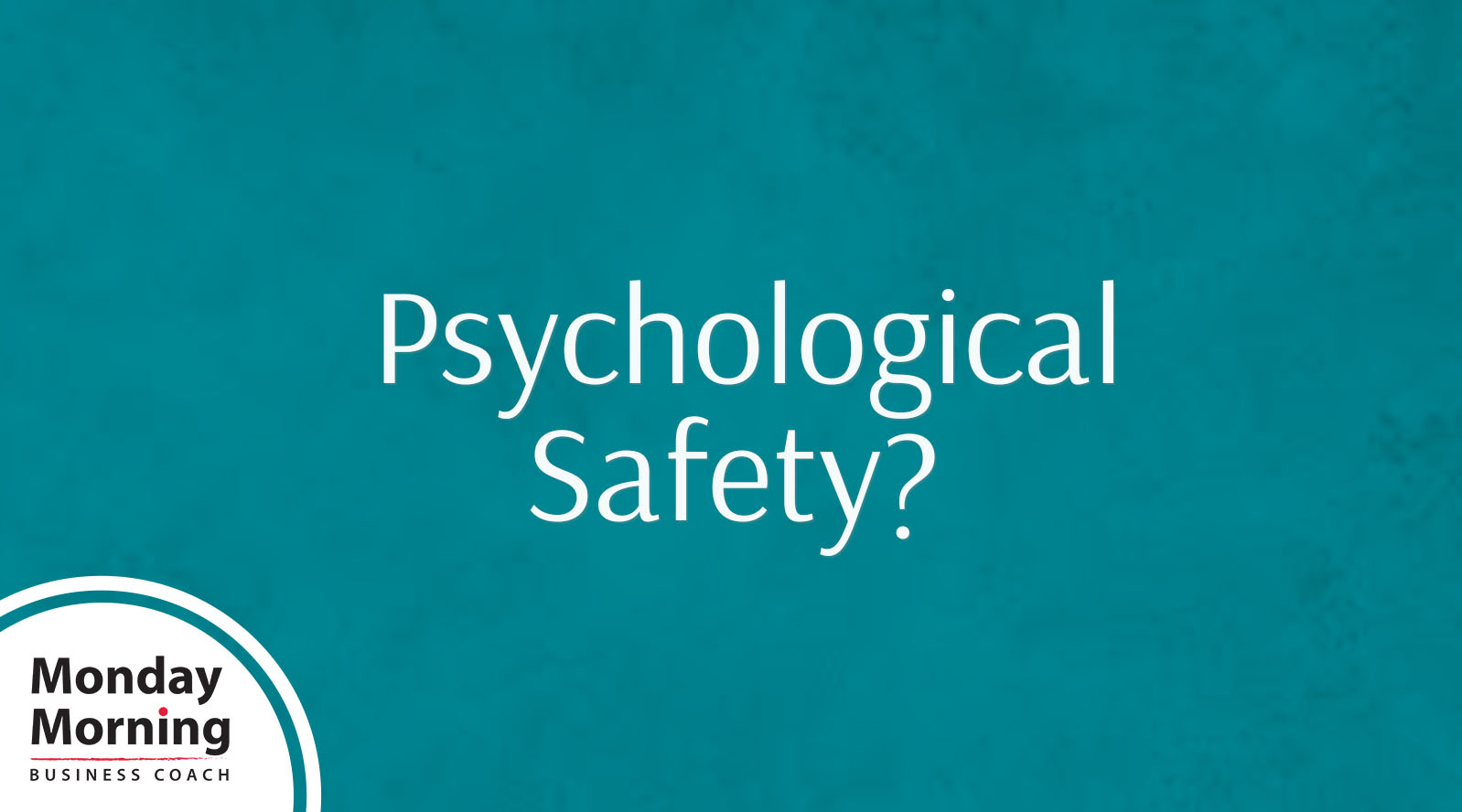As we continue to make our way through some of the most challenging experiences of our lifetimes, we’re seeing the central importance of psychological safety in the workplace more and more.
For many years, consultants and coaches have known that what we now call psychological safety is critical to workplace success, yet it’s only in recent years that we’ve been able to see what psychological safety (and its opposite) does to our brains.
So, what is psychological safety?
Amy Edmonson of Harvard University, first introduced the idea of psychological safety in 1999 in the Administrative Science Quarterly, as:
“a belief that one will not be
punished or humiliated for speaking up
with ideas, questions, concerns, or mistakes,
and that the team is safe for interpersonal risk-taking”
Then in 2015, Google, in its powerful research to try to build great teams, launched Project Aristotle. They found that after looking at hundreds of teams and considering people’s background, work experience, role, title, education, and content expertise, the most powerful teams were those with psychological safety.
In these teams, the researchers observed that:
- all members spoke vs. one person/small group of people speaking most of the time
- people shared both professionally and personally without fear of recrimination
- members felt accepted and respected
- the work mattered and the people mattered
In follow-up neuroscience research, evidence shows that something that feels like an attack to our psychological safety can be more damaging and have more lasting effects than an actual physical attack. Our brains tend to diminish the memory of physical pain, but the pain of insults or rejections can still be felt many years after the event.
This week, we’d like you to explore this concept:
- Think about a time when you felt a strong sense of psychological safety in your work on a team.
- Think of a time when you didn’t feel safe – that you as a person or your work could be responded to with insult or disrespect.
- How did those differences impact how you showed up, your willingness to share ideas, or your openness to acknowledging mistakes and ask for help in fixing them?
As we mentioned in our Depleted post last week, we know that people are overwhelmed and burned out with all that’s coming at them. With that in mind, we’re going to start including resources in our Monday email so that we’re not adding to your inbox on Thursdays.
So, as our resource for this week, we’re including a link to Google’s 2015 research on their re:Work site: Project Aristotle.
Take some time to understand the power of psychological safety personally, and next week we’ll talk about how to create psychological safety in your organizations and teams.


